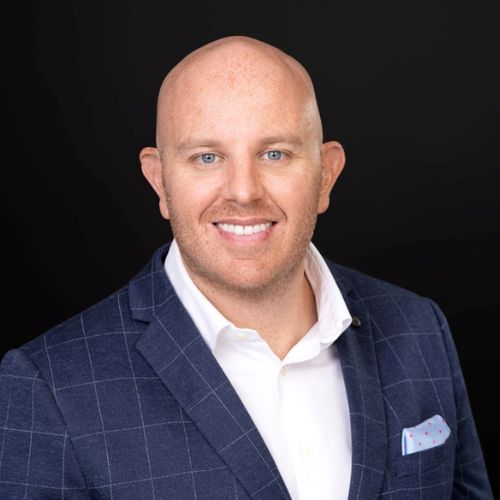Contents
Hello! Who are you?
I’m Rob Kalwarowsky, an impactful leadership coach for Elite High Performance. I use a unique blend of psychology, science, leadership & experience to give my clients life-changing transformations.
I have a special ability to give people an intimate and caring space, regardless of the size of the room, while bringing humor and research into my coaching.
I recently did a TEDx talk called How to Deal with an A**Hole Boss and I co-host the Leadership Launchpad Project podcast, rated Canada’s #3 top leadership podcast by Feedspot.
Before transitioning into leadership coaching & speaking, I spent over 10 years as an engineer within mining, oil pipelines, and consulting in heavy industry.
I have a foundation of high performance as I graduated from Massachusetts Institute of Technology (MIT) with a Bachelor’s degree in Mechanical Engineering with a minor in Management, I was a 3-time Academic All-American in NCAA Water Polo and I played on the Canadian Junior National Water Polo Team. the
Now, I live in Costa Rica, married to my wife, Mbalia and we have an amazing labradoodle, Winston.
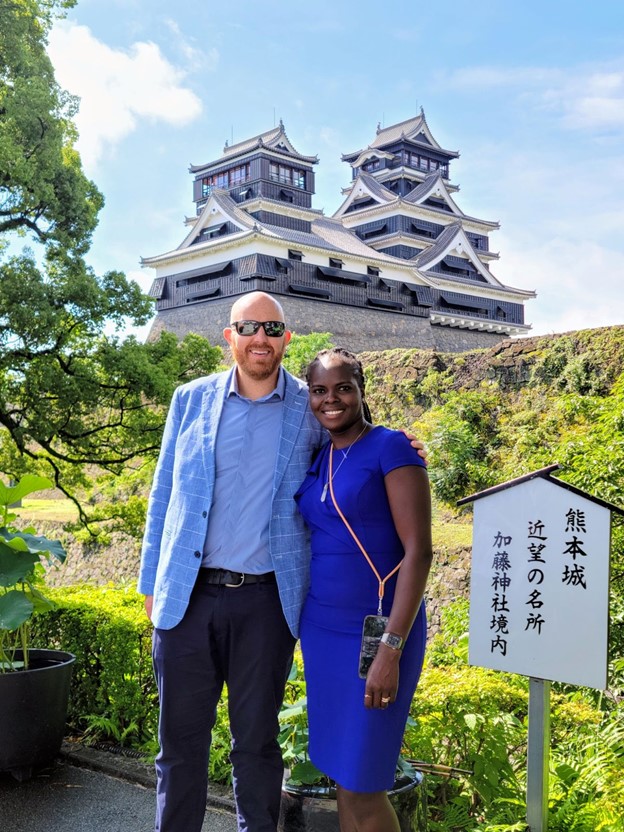
What is your struggle and when did it start?
I struggle with depression, anxiety & suicidality. It started in 2012 because of a toxic boss.
When I started working, I thought I had it all. I played on the Canadian Junior National Water Polo Team and got a Mechanical Engineering degree from MIT.
In my first job in mining, I saved my company millions. I thought I was on the fast track to success and happiness, but it all came crashing down. I had a toxic boss and it led me to turn in on myself.
Day by day, my manager ground me down. He made me question my choices at work, then my purpose, then whether my life itself had any meaning. And in 2013, I tried to take my life.
I was getting medications and therapy at the time but nothing helped. I tried 10-15 medications, I was invalidated in therapy and then I gave up. I didn’t think help would work for me.
In 2020, after moving and switching jobs multiple times, I went back into therapy. My therapist is amazing and we did deep trauma work using EMDR, Internal Family Systems, Accelerated Resolution Therapy, and Dialectical Behaviour Therapy. I still struggled with my mood and she recommended that I try to find medications.
After another 10-15 medications that didn’t work, I finally found a great psychiatrist who prescribed me medications that worked (he ordered a genetic test for me) and ketamine treatment.
It all clicked for me and the last few years were a massive change. I pivoted from engineering into leadership coaching, got married to my wife, got my dog, Winston, moved to Costa Rica, and did a TEDx talk about bad bosses. Now my life is more fulfilling, happier and I’m supported by an incredible group of people.
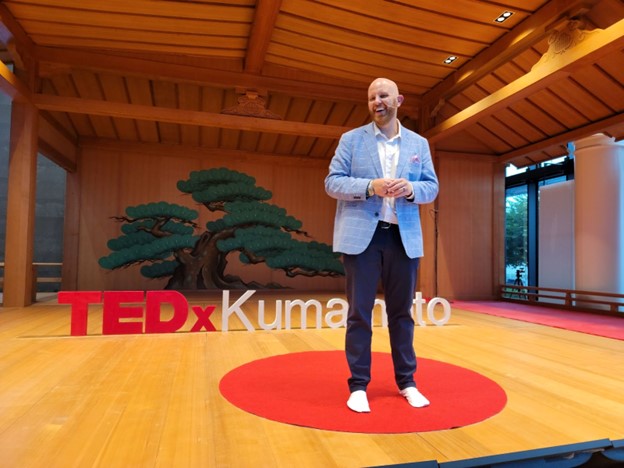
How did this struggle make you feel at your worst moments?
In my worst moments, I felt despair and I felt like my only option was to take my life. I had tried 20-25 different medications, I had tried numerous therapies/therapists, I had tried everything I could think of to help myself and yet, I was in the darkness with no light.
I didn’t know how to get out. I couldn’t see any path or steps that gave me a glimmer of hope. It was all darkness, pain, and despair.
👉 Share your story: Help thousands of people around the world by sharing your own story. We would love to publish your interview and have a positive impact on the world together. Learn more here.
Was there a moment when you started to turn things around?
The moment that things turned around for me was when I met my now psychiatrist for the first time. Up to that point, I had been to 3-4 other psychiatrists, I had taken 20-25 different medications without success, and I had been diagnosed with a multitude of disorders some of which were incorrect.
I had also been doing deep trauma therapy for 9 months where I saw my therapist 2-3 times/week. I knew my therapist was great but I still felt suicidal.
My psychiatrist did 2 things that made me trust him immediately. After I told him, I had tried all these medications and many of them made me feel worse. He ordered a genetic test so we had scientific data on which medications would/wouldn’t work.
The second thing, he showed me multiple scientific papers on the effectiveness of ketamine treatment on treatment-resistant depression. He showed me in the first consult that he relies on science (not guesswork like what I experienced before) and he was constantly searching for new treatments to help people more effectively. He was the final piece of my puzzle that saved my life.
When I was assessed by my psychiatrist in June 2021, I was 51 out of 63 on Beck’s Depressive Inventory (considered Extreme Depression). A few months later, I was in my 20s (Borderline Clinical Depression) and now, I’m not considered depressed anymore (I still take medication, have treatment, and do therapy to maintain my current mood).
What steps did you take to overcome your struggle?
- My top recommendation for people who struggle with depression is to surround yourself with the right people. I think it should include both mental health professionals and personal connections (spouse, partner, friends, family, colleagues, etc.)
- For me, the right mental health professionals were a psychologist & psychiatrist who were constantly growing, evolving their thinking, and willing to experiment with new modalities.
- Here are a few examples:
- I found a great therapist where I was able to excavate & heal trauma. For example, EMDR & IFS therapy were more effective for me than CBT or talk therapy. My therapist was constantly taking new programs, speaking to her mentors, and implementing her learnings with me.
One key example was her using Accelerated Resolution Therapy on my memory of the suicide attempt. Through ART, I was able to process the trauma of that event and change the memory. - I found a great psychiatrist where I was able to balance the chemicals in my brain. He was constantly reading scientific papers and kept showing me new research on ketamine and my medications to give reasoning behind his recommendations.
The keys for me were MAOI medications instead of traditional SSRIs and using ketamine treatment which is fairly new in its usage as an antidepressant.
- I found a great therapist where I was able to excavate & heal trauma. For example, EMDR & IFS therapy were more effective for me than CBT or talk therapy. My therapist was constantly taking new programs, speaking to her mentors, and implementing her learnings with me.
- For me, the right personal support system included a coach, my wife, and my dog.
- I found a great coach where I was able to envision and work towards a fulfilling future. She gave me the optimism, clarity, and confidence that I had lost while suffering.
- I found an amazing wife & dog who gave me love and acceptance. My wife has supported me through my darkest moments and given me love when I was broken.
My dog showed me what unconditional love and unconditional acceptance is. He’s always near me and we share so many moments throughout the day that keep me feeling great.
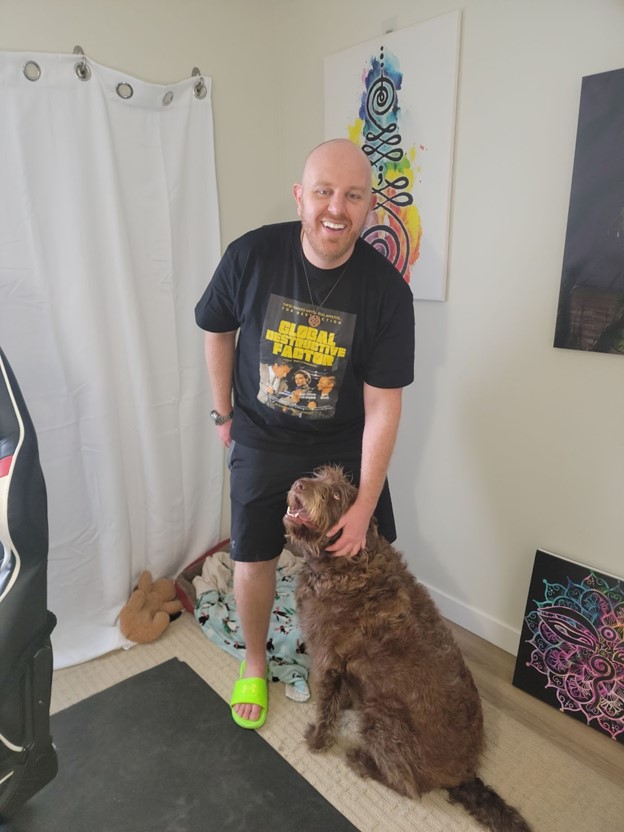
Have you shared any of this with people around you in real life?
When I started struggling in 2012, I found it hard to share it with anyone. When it became too much for me to handle on my own, I started sharing it with friends.
Unfortunately, I pushed those friends away because of what I was sharing. They were not mental health professionals and I overstepped their boundaries by sharing too much.
In 2019, I started talking about it openly. I wrote a blog post about depression where I received so much feedback from the global maintenance & reliability engineering community that I never turned back. I started sharing pieces on my podcast as well.
The impact helped me keep going. I received messages from people who struggled from Australia to North America saying that reading that blog helped them.
In 2021, I had the privilege of doing a keynote in Australia where hundreds of professionals heard me speak about my mental health struggles. Most recently, in July 2023, I did a TEDx talk in Japan about toxic bosses and my mental health struggles that were triggered by having one.
If you could give a single piece of advice to someone else that struggles, what would that be?
Don’t stop searching until you find your perfect support team. I went through many therapists, psychiatrists, coaches, and friends (losing some in the process) until I found the right support team for me. I felt so many times that I was unfixable. After years of searching, I finally found the perfect people for my support system. It wasn’t easy, it wasn’t overnight but it saved my life.
What have been the most influential books, podcasts, YouTube channels, or other resources for you?
- Internal Family Systems was a game-changer for me not only in supporting my own healing/day-to-day life but also in understanding others.
- Dr. Richard Schwartz’s book – No Bad Parts was really helpful in understanding IFS after I had done many therapy sessions using this modality. I was also fortunate to have interviewed Dr. Schwartz for the Leadership Launchpad Project podcast.
Where can we go to learn more about you?
- I’m most active on LinkedIn.
- My podcast, Leadership Launchpad Project.
- For tips & strategies to Help You Deal with a Toxic Boss.
- For 1on1 or corporate high-performance leadership coaching.
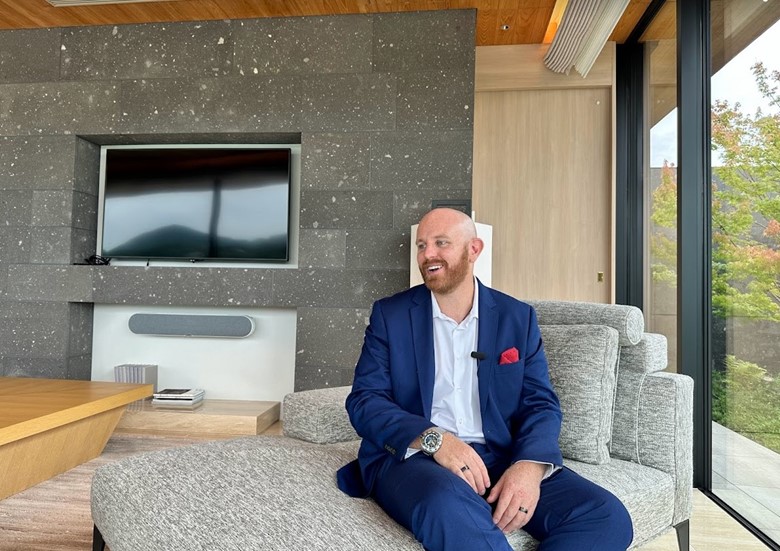
Want more interviews?
Continue reading our inspiring case studies and learn how to overcome mental health struggles in a positive way!
Want to help others with your story? We would love to publish your interview and have a positive impact on the world together. Learn more here.

